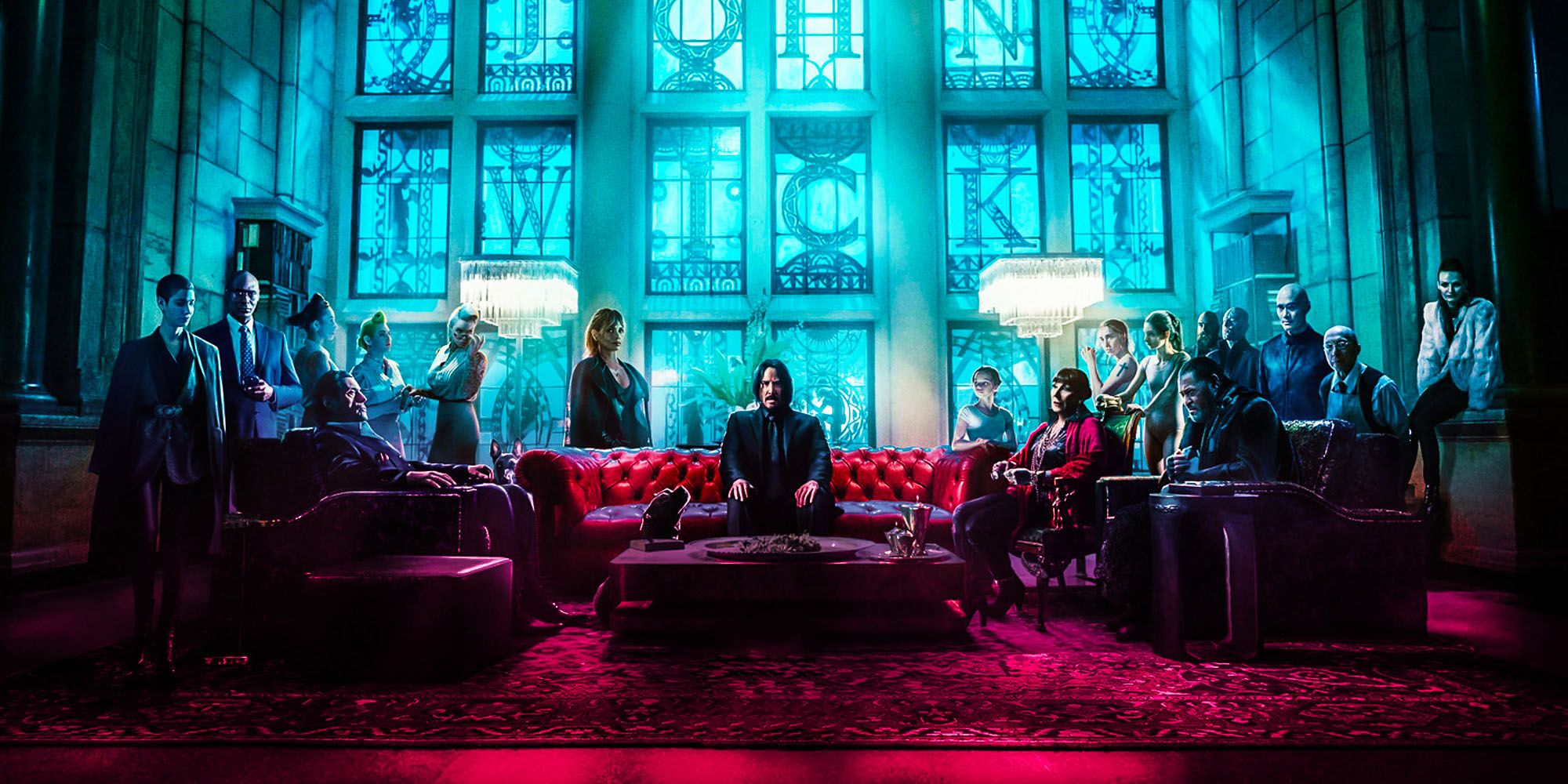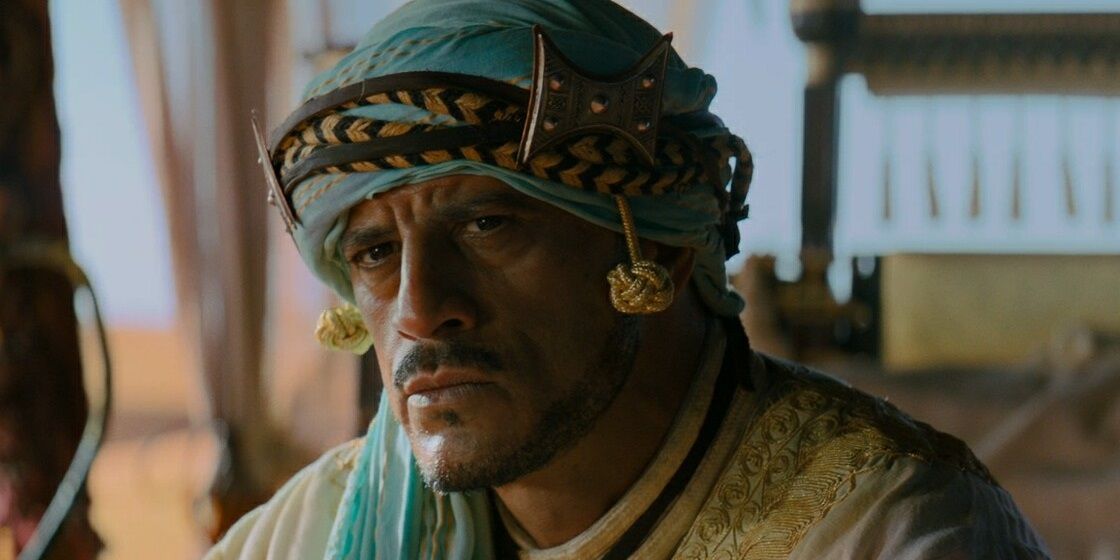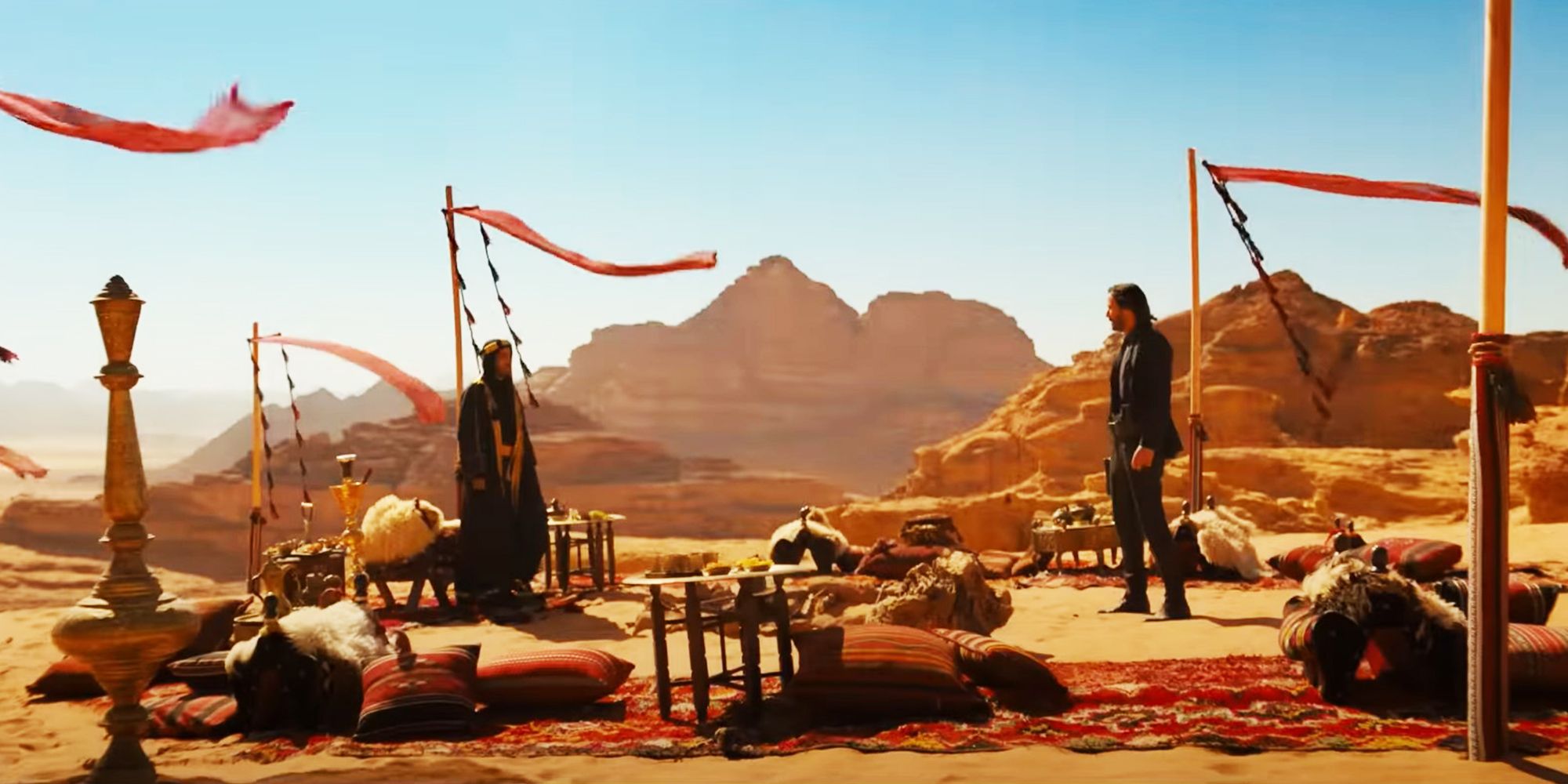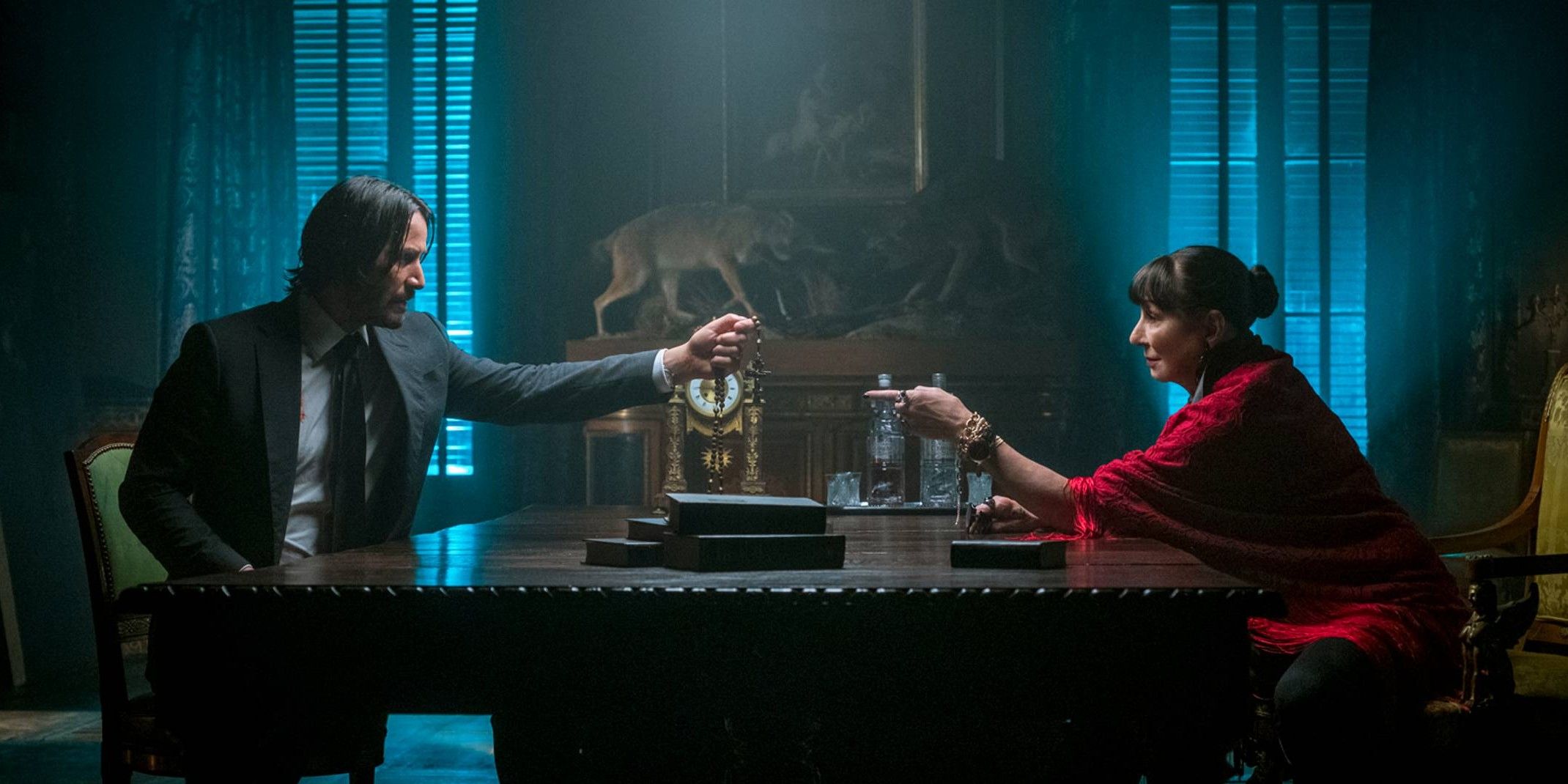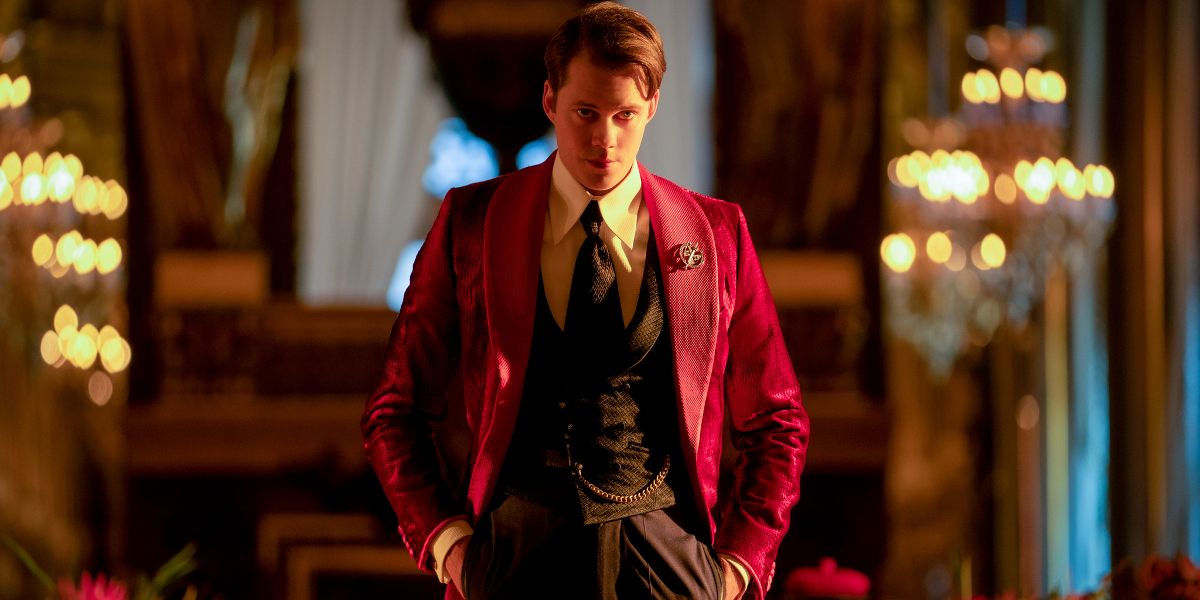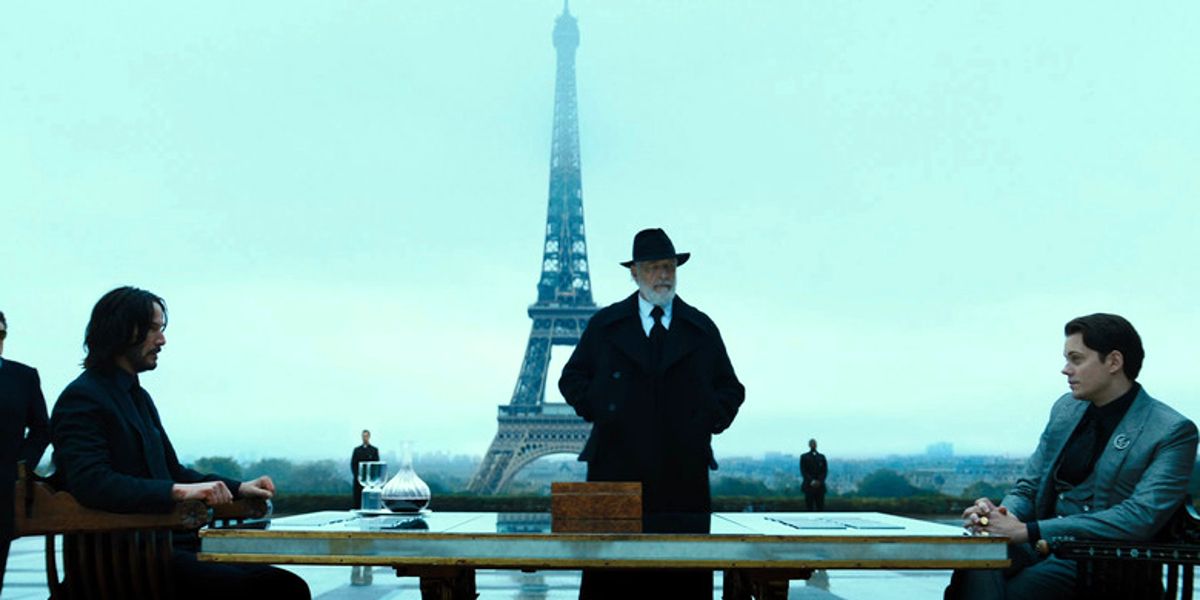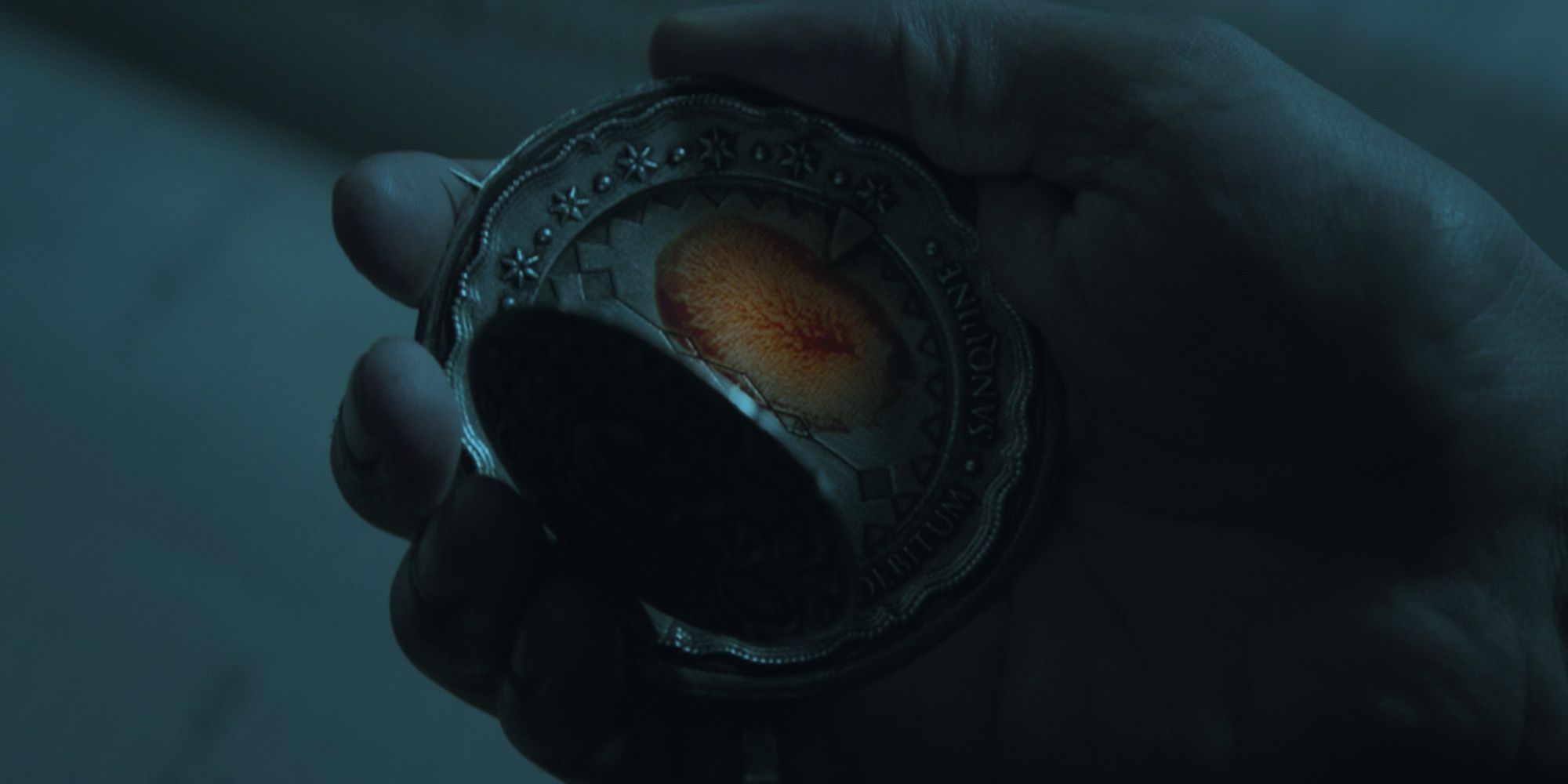[ad_1]
Warning: This article contains spoilers about John Wick: Chapter 4.The rules for the High Table have been slowly explained through the entire John Wick franchise, and John Wick: Chapter 4 goes into even greater detail. John Wick presented a simple story about its titular hitman coming out of retirement to seek revenge on the people who harmed his puppy, a gift from his late wife Helen, with only hints at the underworld he left behind. By John Wick: Chapter 2, the lore of the franchise was expanding with a hotel just for assassins and gold markers representing debts between hitmen, culminating with the inclusion of the High Table, an almost mythological criminal council that becomes Wick’s greatest enemy.
After murdering one of its members on Continental grounds, the High Table puts a bounty on Wick’s head and cuts off all access to his former privileges, something he tries to get reversed in John Wick: Chapter 3 – Parabellum but ultimately gets pulled deeper into the High Table’s web. By John Wick 4, Wick has come to understand that in order to be free of the High Table and its rules, he must approach its demise more creatively, or he will never be rid of its influence over his life and anyone he cares about. Ultimately, the High Table rules that once completely bound Wick become the only thing that can set him free.
What Is The High Table
The High Table is an elite council populated by twelve crime lords from high-ranking families that govern the underworld presented in the John Wick franchise, with ultimate authority over any criminal enterprise and its subsequent disputes. Said to have origins that extend to the time of the ancient Aztec Empire and far older than any of the leading governments on Earth, the High Table’s reach extends into every aspect of politics and society. This allows it to operate without any interference from world leaders or law enforcement, ensuring uninterrupted focus on its own affairs, most of which is handled through the use of highly elite assassins like John Wick.
With each film in the John Wick franchise, the High Table has become a more prominent antagonist, and as Wick has navigated its rules and outmaneuvered its agents, it has contributed greatly to distinct world-building. The High Table and its tumult, whether with Wick or between its own members, has created some of the franchise’s best dramatic elements and continues to set it apart from other generic action franchises. Violating its rules and handling the repercussions is a tug-of-war that has become the main source of momentum for many of the main characters in the franchise.
Who Is On The High Table
At the head of the High Table sits The Elder, a mystical leader from the Moroccan desert, followed by representatives of the Camorra, Yakuza, Cosa Nostra, Bratva, Triad, and ‘Ndrangheta criminal organizations, along with the Latin and South American cartels. Prominent positions were once held at one time by Gianna D’Antonio and later Santino D’Antonio, but both were killed in John Wick: Chapter 2, and the most senior member to be introduced has been the Marquis de Gramont in John Wick: Chapter 4. Wick’s adoptive mother from the Ruska Roma organization, known as The Director, has held enough sway to protect him over the years.
The High Table uses agents with specially designated purposes to handle its affairs, such as The Adjudicator, who represents The Elder and is an enforcer of the High Table’s will with the means to punish anyone who violates the High Table’s regulations. Another is The Harbinger, who functions as an emissary for formal matters concerning the High Table, such as hotel desecrations, or presiding over duels between members of the High Table. Other agents with less specific titles include Zero, an elite assassin employed by The Adjudicator to try to kill Wick in John Wick: Chapter 3 – Parabellum and Chidi, who operates on behalf of the Marquis de Gramont.
The High Table’s Powers & Influence
The High Table has a great deal of influence over not just the underworld, but all sectors of society. It aims to rule out of respect, but often resorts to ruling out of fear, often neglecting the good of those it governs in favor of a self-centered method of operation that mostly involves its own self-preservation. As with Wick and any of his associates who offer him safe harbor, such as the Bowery King, or Winston and his concierge Charon, it resorts to the harshest of punishments as an incentive to follow the rules – in the Bowey King’s case, severe laceration, in Charon’s case, execution to cripple Winston’s resolve.
Along with The Adjudicator and its agents, it also has an organization called the Administration, which processes the High Table’s commands and distributes them internationally. Through its operators, it keeps diligent files on all the contract killers operating beneath the Table, giving the order to start and stop certain contracts at will, as well as to increase rewards for capture. In sharp contrast to the often melodramatic members of the High Table, administrators, and operators are shown to be vigilant, capable, and officious at all times.
How To Join The High Table
To join the High Table, one needs to be a member of a high-ranking crime family, and the privilege of sitting at the Table is handed down through the family lineage. In the case of the D’Antonios, Santino had to have his sister Gianna murdered (albeit covertly) in order to take her place, walking a very precarious line between what would gain him power and what would condemn him to death. The power comes with too many perks, and some people will stop at nothing to have it, while others, like the Bowery King, would rather laugh in its face.
The Bowery King, presiding over an underground empire built on the network of The Soup Kitchen (a homeless shelter through which unhoused individuals gather intelligence for him from all over New York City) nearly became an adjutant of the High Table once. He swore fealty when confronted by The Adjudicator, and was allowed to operate independently, though he later betrayed his oath out of spite. Other criminals or assassins in service usually aren’t so flippant about the High Table’s rules, but the Bowery King has leverage in the secrets he knows about its members.
Who Is The Marquis?
A senior member of the High Table, the Marquis Vincent de Gramont is given full authority over the council by its members in John Wick: Chapter 4 with the understanding that he will be the one to finally bring down John Wick. A sadistic man who thinks nothing of severally injuring the people in his service, he aims to not only kill Wick, but kill “the idea of John Wick,” because he believes, like Winston, if he is victorious over the High Table he will be turned into a saint. He understands that Wick has become, like Robin Hood, a beacon of hope for all those beneath the High Table who want to leave the underworld and its oppression behind.
The Marquis thinks that he’s “above the Table,” but thanks to Winston, Wick finds a way to outmaneuver him through a loophole hidden in the Old Ways, a system of rules from early in the High Table’s formation. At one point in the High Table’s history, matters of business were often settled between two people in a duel and didn’t extend into a gratuitous bloodbath involving their allies. Like most of the highest-ranking members of the High Table, the Marquis thinks he’s above the rules and yet its rules will save him, but Wick knows they will not because they’ve been corrupted by the organization’s self-interest and cruelty.
High Table Duels
According to the Old Ways, a member of the High Table may be challenged to a duel by another member of the High Table, and Wick uses this rule to engage the Marquis in single combat. The Marquis tries to decline, citing Wick’s excommunicado status, but after John Wick’s Jardani name gets redeemed through the Ruska Roma family crest, the Marquis has no choice but to accept. After some deliberation with The Harbinger, they decide on dueling pistols at dawn at the Sacre Coeur church in Paris, and agree to terms that include Wick’s freedom (and the reinstatement of Winston and the Continental) if he wins.
The duel begins at thirty paces, with each shot fired allocating ten more for each opponent until they stand at near point-blank range. This is perhaps why the Marquis nominates the deadly assassin Caine to begin the duel rather than act as his second; fear can override reason in this case, and Wick makes the most of his chances to shoot, even if it means taking a shot to save his shot. A second can invoke deus ex machina and take the final shot for themselves, as the Marquis does, but it’s only because he hasn’t been paying attention to Wick’s use of an opportune moment.
Other High Table Rules
The High Table has certain rules that must be followed, including not killing a member of the High Table, not conducting business on Continental hotel grounds, and failing to honor the debt of a gold marker, such as John Wick’s blood oath with Santino. Violating the rules of the High Table results in becoming “excommunicado,” and no longer under the protection of the High Table’s authority, or anyone who offers aid. Anyone with this label is also subjected to a bounty set by the High Table, like the $7 million dollar one placed on Wick’s head which ballooned to $35 million by the end of John Wick: Chapter 4.
Even after John Wick 4, the High Table has many mysteries, with a lot of room for further development should the franchise continue. Many High Table members still haven’t been revealed, and if it doesn’t happen with John Wick 5, the High Table lore could be expanded in the spinoff Ballerina. The High Table and its concept of actions conducted “above the table” and “under the table” offers an ironic twist on morality, with those who obey the rules by the former being highly secretive, and those who conduct themselves by the latter being the most transparent, making it one of the most original governing bodies in recent cinema.
[ad_2]
Source link

